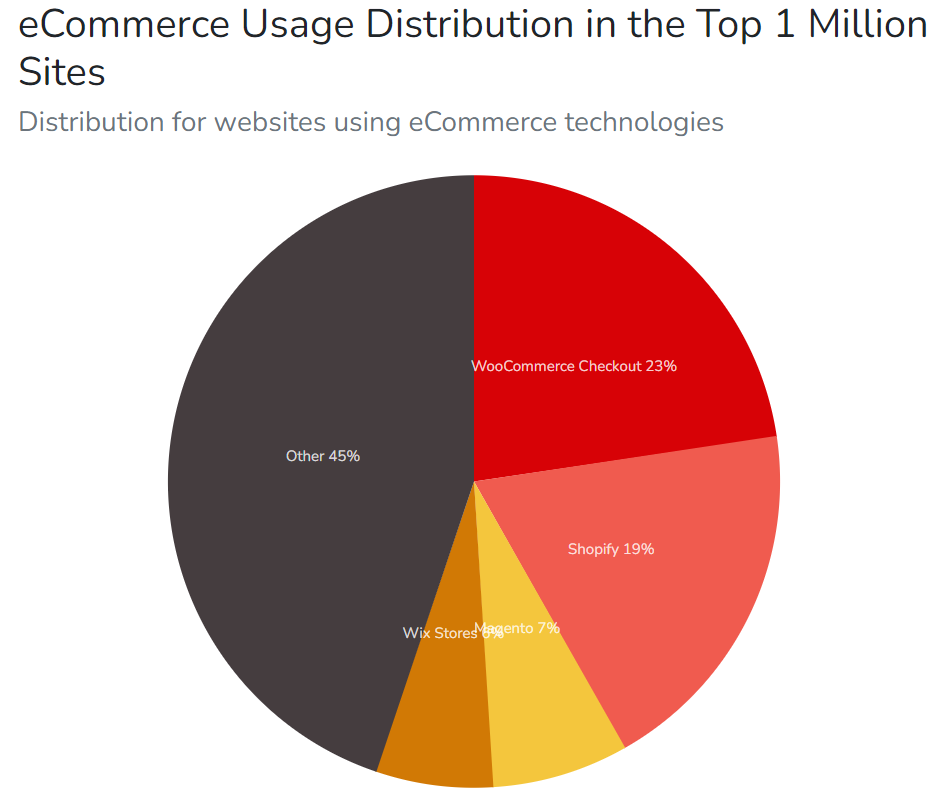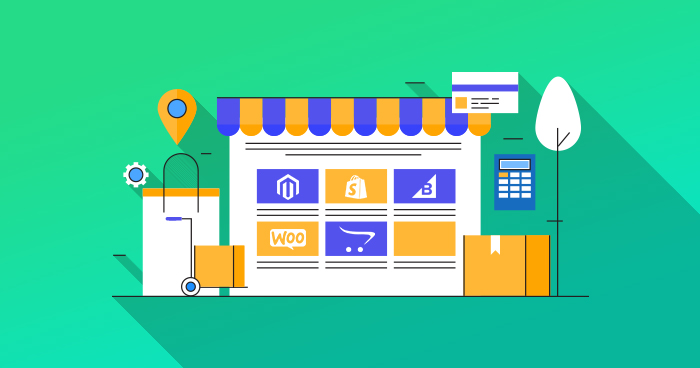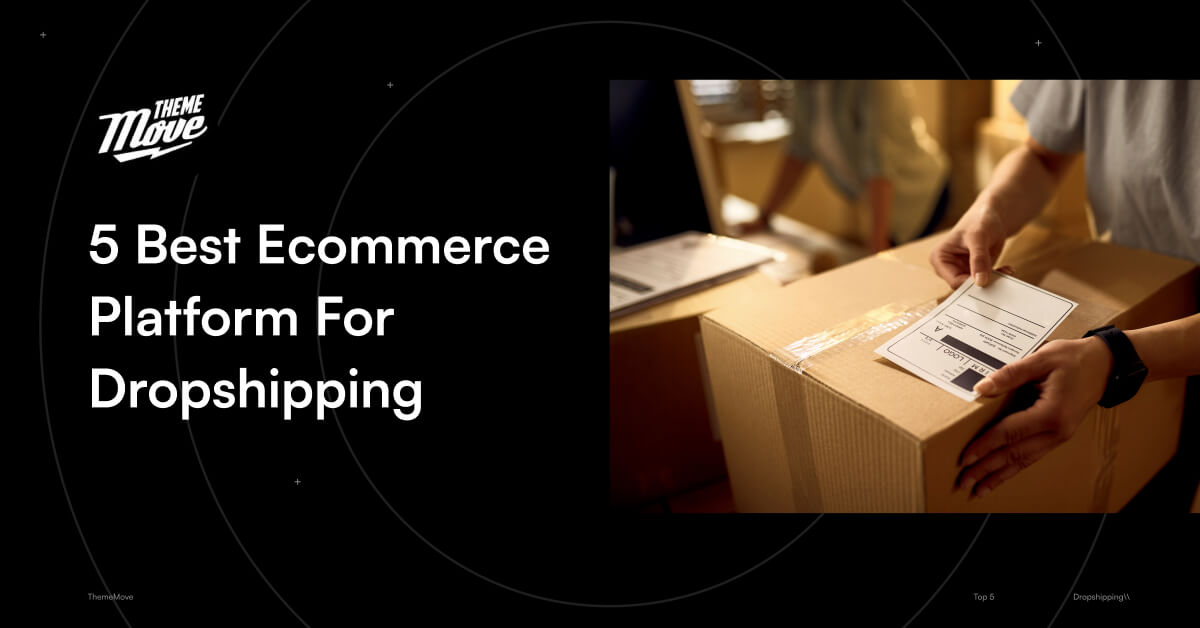Dropshipping is a popular way to start an online business. It allows you to sell products without holding inventory.
Starting a dropshipping business can seem overwhelming with so many e-commerce platforms available. Each platform offers unique features and benefits. Choosing the right one can make a big difference in your success. Some platforms provide extensive support and tools, while others focus on ease of use or pricing.
Understanding these differences can help you find the best fit for your needs. This guide will help you explore the top e-commerce platforms for dropshipping, making it easier to launch and grow your business. Let’s dive in and find the perfect platform for you.
Introduction To Dropshipping
Discover top e-commerce platforms for dropshipping. Learn about Shopify, WooCommerce, and BigCommerce. These platforms simplify starting a dropshipping business.
Dropshipping has become a popular business model. Entrepreneurs love it for its simplicity. It allows you to sell products without holding inventory. This model is great for beginners in e-commerce. You can start with little capital and minimal risk.What Is Dropshipping?
Dropshipping is a retail method. The store owner does not keep products in stock. Instead, when a store sells a product, it purchases the item from a third party. The third party ships the item directly to the customer. The seller never sees or handles the product. This makes dropshipping very easy to manage.Benefits Of Dropshipping
Dropshipping offers several key benefits. First, it requires less capital. You do not need to buy inventory upfront. This reduces financial risk. Second, it is easy to start. You only need a computer and internet connection. This makes it accessible to almost anyone. Third, dropshipping offers flexibility. You can run your business from anywhere. You are not tied to a specific location. This is perfect for digital nomads and remote workers. Lastly, dropshipping allows for a wide product selection. You can offer a variety of items without worrying about storage. This helps attract more customers. “`
Credit: www.cloudways.com
Discover engaging insights on E-commerce by reading this featured article. E-Commerce Platform Comparison for Beginners: Best Picks 2024
Key Features Of E-commerce Platforms
Top e-commerce platforms for dropshipping offer user-friendly interfaces and seamless integration with suppliers. They provide reliable customer support and a variety of customizable templates. These platforms ensure secure payment processing and efficient order management.
Choosing the right e-commerce platform for dropshipping is crucial. Each platform offers unique features. These features can make or break your online business. Let’s explore some key features you should look for in e-commerce platforms.User-friendly Interface
A user-friendly interface is essential. It ensures you can set up your store quickly. Simple navigation helps even beginners manage their store. Look for platforms with intuitive dashboards. This will save you time and effort.Customization Options
Customization options allow you to stand out. You can tailor your store to fit your brand. Look for platforms offering various templates. Ensure you can modify these templates easily. This helps create a unique and appealing store.Payment Gateways
Multiple payment gateways are important. They offer your customers payment flexibility. Make sure the platform supports popular gateways. This includes options like PayPal and Stripe. It helps you cater to a global audience. “`Shopify
Shopify stands out as a top choice for dropshipping. It offers a user-friendly interface, extensive app integrations, and powerful tools. Many entrepreneurs prefer Shopify for its ease of use and robust features.
Overview
Shopify is a leading e-commerce platform. It supports businesses of all sizes. With Shopify, you can create an online store quickly. The platform offers numerous themes and customization options. It also integrates smoothly with various dropshipping apps.
Pros And Cons
Shopify has many advantages. It is easy to use and set up. The platform provides excellent customer support. There are many app integrations. Shopify offers a secure and reliable service. It also has a large community of users.
However, Shopify has some downsides. It can be expensive for some users. There are additional costs for apps and features. Customization options can be limited without coding knowledge. Transaction fees apply unless you use Shopify Payments.
Explore the depths of E-commerce with this informative post. Features to Look for in an E-Commerce Solution: Essential Guide
Pricing
Shopify offers several pricing plans. The Basic plan starts at $29 per month. This plan includes essential features for small businesses. The Shopify plan costs $79 per month. It offers more advanced features and lower transaction fees. The Advanced plan is $299 per month. It provides the most features and lowest transaction fees. Shopify also offers a 14-day free trial. This trial allows you to test the platform before committing.

Credit: www.cloudways.com
Woocommerce
WooCommerce is a popular e-commerce platform for dropshipping. It’s a plugin for WordPress that turns your site into a fully functional online store. It offers a wide range of features and customization options. Perfect for users who want control over their store.
Overview
WooCommerce is an open-source plugin for WordPress. This means it is free to use and highly customizable. It offers various themes and extensions. This allows you to tailor your online store to your exact needs.
WooCommerce supports a range of payment gateways and shipping options. It is also SEO-friendly and mobile-optimized. This ensures your store ranks well on search engines and provides a good user experience on all devices.
Pros And Cons
| Pros | Cons |
|---|---|
|
|
Pricing
WooCommerce itself is free to use. But, there are costs associated with running a WooCommerce store. These include:
- Hosting: You will need to pay for WordPress hosting.
- Domain Name: Costs for registering your domain name.
- Extensions: Some plugins and themes may have a cost.
Overall, WooCommerce offers flexibility and control. But, it requires some investment and technical skills.
Bigcommerce
BigCommerce is a powerful e-commerce platform that supports dropshipping. It offers robust features and an intuitive interface. This platform is popular among both beginners and experienced entrepreneurs.
Need more clarity on E-commerce? This post provides the answers you're seeking. Best Tools for Creating an Online Store: Top Picks for Success
Overview
BigCommerce provides a comprehensive solution for online stores. It supports various business models, including dropshipping. The platform is cloud-based, which means you don’t need to worry about hosting. It also integrates with many third-party applications, making it versatile and flexible.
Pros And Cons
| Pros | Cons |
|---|---|
|
|
Pricing
BigCommerce offers various pricing plans to fit different budgets:
- Standard Plan: $29.95 per month
- Plus Plan: $79.95 per month
- Pro Plan: $299.95 per month
Each plan includes unlimited products, file storage, and bandwidth. The higher tiers offer advanced features like abandoned cart recovery and custom SSL.
Magento
Magento is a popular e-commerce platform for dropshipping. It offers extensive customization options. It’s known for its flexibility and robust features. If you have technical knowledge, it can be a powerful tool. Let’s delve into the details of Magento.
Overview
Magento is an open-source e-commerce platform. It provides a high degree of control over the look and functionality of your online store. This platform is ideal for businesses that need a tailored solution. It’s highly scalable and can grow with your business.
Magento comes in two versions: Magento Open Source (free) and Magento Commerce (paid). The paid version includes additional features and support. It’s suitable for larger businesses with complex needs.
Pros And Cons
| Pros | Cons |
|---|---|
|
|
Pricing
Magento Open Source is free to use. However, you may incur costs for hosting, development, and maintenance. Magento Commerce is a paid version with more features. The pricing for Magento Commerce starts at $22,000 per year.
For both versions, you may need to hire developers. This can add to your costs. Consider your budget and technical capabilities before choosing Magento.
Wix Ecommerce
Wix eCommerce is a popular platform for building online stores. It offers a user-friendly interface and a variety of design options. This makes it a great choice for those new to dropshipping. Below, we will explore its features, benefits, drawbacks, and pricing.
Overview
Wix eCommerce provides all the tools needed to create and manage an online store. It is known for its ease of use and professional templates. Users can quickly set up their store without needing any coding skills.
Wix offers:
- Drag-and-drop builder
- Customizable templates
- Secure payment options
- Inventory management
- Marketing tools
Pros And Cons
| Pros | Cons |
|---|---|
|
|
Pricing
Wix offers several pricing plans, suitable for different needs and budgets. Below is a table of their main plans:
| Plan | Price (per month) | Features |
|---|---|---|
| Basic | $23 |
|
| Unlimited | $27 |
|
| VIP | $49 |
|

Credit: thememove.com
Comparing E-commerce Platforms
Choosing the right e-commerce platform is crucial for dropshipping success. With many options available, each platform offers unique benefits and challenges. This section compares key aspects of popular e-commerce platforms. Understanding these differences can help you make an informed decision.
Ease Of Use
A user-friendly platform is vital for dropshipping beginners. Shopify stands out for its intuitive interface. Setting up your store is straightforward and quick. WooCommerce integrates seamlessly with WordPress, which many find easy to manage. BigCommerce also offers a clean and simple dashboard. These platforms make daily operations smooth and hassle-free.
Scalability
As your business grows, your platform should support expansion. Shopify offers various plans catering to different business sizes. WooCommerce, being open-source, allows limitless customization and growth. BigCommerce provides advanced features that cater to large-scale operations. Scalability ensures your platform can handle increased traffic and sales volume.
Support And Community
Reliable support and a strong community can be lifesavers. Shopify boasts 24/7 customer support via chat, email, and phone. WooCommerce has a large community and extensive documentation. BigCommerce offers robust support and a helpful user community. These resources can assist you in resolving issues and improving your store.
Choosing The Right Platform
Choosing the right platform is crucial for your dropshipping success. A good platform can ease operations, while a poor one can complicate them. Your choice depends on your business needs, budget, and future growth plans. Let’s dive deeper into each factor.
Assessing Business Needs
Start by understanding your business needs. What products will you sell? Is there a niche you are targeting? Does the platform support your product type?
Next, look at integration. Can the platform connect with your suppliers? Check if it supports popular payment gateways. Finally, consider ease of use. Can you set up and manage the store without technical skills?
Budget Considerations
Budget plays a significant role in choosing a platform. Some platforms have low upfront costs but high transaction fees. Others might charge a higher monthly fee but offer more features.
Create a table to compare costs:
| Platform | Monthly Fee | Transaction Fee | Additional Costs |
|---|---|---|---|
| Shopify | $29 | 2.9% + 30¢ | Apps, Themes |
| WooCommerce | $0 | Depends on Payment Gateway | Hosting, Plugins |
| BigCommerce | $29.95 | 0% | Apps, Themes |
Review your budget and match it to the platform’s cost structure. This helps in avoiding unexpected expenses.
Future Growth
Consider your business’s future growth. Will you expand your product range? Will you need advanced features like multi-channel selling or international shipping?
Look for platforms that scale easily. Check if they offer plans for growing businesses. Make sure they have features that support expansion. This helps you avoid switching platforms later, saving time and effort.
Review customer support options. As your business grows, you may need more help. Ensure the platform offers robust support.
Frequently Asked Questions
What Is The Best E-commerce Platform For Dropshipping?
The best e-commerce platform for dropshipping depends on your needs. Shopify is popular for its ease of use. WooCommerce is great if you prefer WordPress. Both offer robust features for dropshipping.
How Does Shopify Support Dropshipping?
Shopify supports dropshipping through various apps like Oberlo and Spocket. These apps make product sourcing easy. Shopify’s user-friendly interface helps manage your store efficiently.
Is Woocommerce Good For Dropshipping?
Yes, WooCommerce is excellent for dropshipping. It integrates with many dropshipping plugins like AliDropship. WooCommerce is flexible and customizable, perfect for WordPress users.
Can I Use Bigcommerce For Dropshipping?
Yes, BigCommerce is suitable for dropshipping. It supports integrations with dropshipping suppliers. BigCommerce offers robust features and scalability for growing businesses.
Conclusion
Choosing the right e-commerce platform is vital for your dropshipping success. Each platform offers unique features and benefits. Consider your needs and budget carefully. A well-chosen platform can streamline your operations. It can also enhance your customer experience. Start exploring options today.
Your perfect e-commerce platform awaits. Happy dropshipping!











